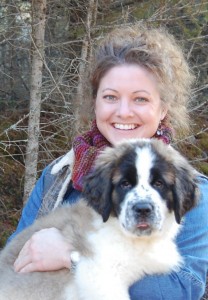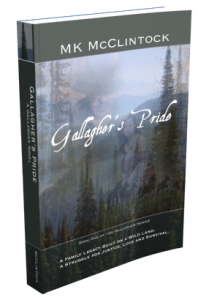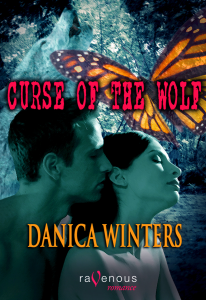“A sense of humor...is needed armor. Joy in one's heart and some laughter on one's lips is a sign that the person down deep has a pretty good grasp of life.” Hugh Sidey  One of my favorite and least favorite conversations is when I introduce myself to a new person. I wait for the inevitable question, “What do you do for a living?” My heart quickens, because I love my job. I love writing. I love creating. I love imagining the impossible.“I’m a romance author.” I smile proudly.Then from their reaction I know who the person is: the non-romance reader cringes, the romance reader smiles excitedly and spills over with questions (I love these meetings—can you say ‘instant friendship?’), literary writers smirk and genre writers smile proudly and exclaim ‘Me too!’.It is truly amazing what you can learn from a person in the five seconds following my simple statement.Next I’m often asked, by the non-romance readers, “Why would you do that?” It’s almost as if, by writing romance, in their mind, I’m instantly delegated to the social rank of a stripper or porn star. Little do they know I’m far different than a porn star…I’m a professional writer—I know no pole dancing moves (not that I wouldn’t give it a shot), I don’t know camera angles, or movie making lingo, and I’ve never (intentionally) shown my ‘girls’ in public.What I most dislike about this assumption is the fact that they believe I’m writing smut. My internal dialogue goes crazy. Don’t they realize the amount of work that goes into writing a novel? Story structure? Pacing? Dialogue? Plot? Acts? Critiquing? Editing? Going to conferences? Teaching classes? Writing blogs? Pitching the novel? Writing the queries and the dreaded Synopsis? I’m sure they don’t mean to offend me, but the ‘smut’ that they are judging me for, is about 5 pages out of my 300 page novels. It’s less than 1% of my work. Yet, it comprises 100% of their opinion. I don’t walk into their job and point at their coffee cup and say, “Why do you do that?” (Though now, I think I just may.)During these lapses in conversational etiquette I always bite my tongue and give them the well-worn answer. “I love it. It’s a lot of fun.” And I leave it at that. If the person eventually becomes my friend, they begin to learn all that goes into writing, all the victories and the defeats, and soon they come to realize that most writing (even some literary) is, at their core, romance. And over a glass of wine, they come to learn that most writers are not porn stars or stippers, instead only humorists in disguise.
One of my favorite and least favorite conversations is when I introduce myself to a new person. I wait for the inevitable question, “What do you do for a living?” My heart quickens, because I love my job. I love writing. I love creating. I love imagining the impossible.“I’m a romance author.” I smile proudly.Then from their reaction I know who the person is: the non-romance reader cringes, the romance reader smiles excitedly and spills over with questions (I love these meetings—can you say ‘instant friendship?’), literary writers smirk and genre writers smile proudly and exclaim ‘Me too!’.It is truly amazing what you can learn from a person in the five seconds following my simple statement.Next I’m often asked, by the non-romance readers, “Why would you do that?” It’s almost as if, by writing romance, in their mind, I’m instantly delegated to the social rank of a stripper or porn star. Little do they know I’m far different than a porn star…I’m a professional writer—I know no pole dancing moves (not that I wouldn’t give it a shot), I don’t know camera angles, or movie making lingo, and I’ve never (intentionally) shown my ‘girls’ in public.What I most dislike about this assumption is the fact that they believe I’m writing smut. My internal dialogue goes crazy. Don’t they realize the amount of work that goes into writing a novel? Story structure? Pacing? Dialogue? Plot? Acts? Critiquing? Editing? Going to conferences? Teaching classes? Writing blogs? Pitching the novel? Writing the queries and the dreaded Synopsis? I’m sure they don’t mean to offend me, but the ‘smut’ that they are judging me for, is about 5 pages out of my 300 page novels. It’s less than 1% of my work. Yet, it comprises 100% of their opinion. I don’t walk into their job and point at their coffee cup and say, “Why do you do that?” (Though now, I think I just may.)During these lapses in conversational etiquette I always bite my tongue and give them the well-worn answer. “I love it. It’s a lot of fun.” And I leave it at that. If the person eventually becomes my friend, they begin to learn all that goes into writing, all the victories and the defeats, and soon they come to realize that most writing (even some literary) is, at their core, romance. And over a glass of wine, they come to learn that most writers are not porn stars or stippers, instead only humorists in disguise.
The Inspiration Behind the Book by Guest Blogger MK McClintock
 I am excited to host a fellow Montana-based author, MK McClintock, on my blog. McClintock is an entrepreneur, baker, photographer, tour host, reviewer, and multi-genre author. She was born on the west coast, but after less than eight years she left with her family to the Rocky Mountains. After more adventures around the country, business-college, and culinary school, McClintock found a place to call home in Montana.Over the years McClintock traveled the country and visited magnificent Scotland. She dreams of a time when life was simpler, the land rougher, and the journey more rewarding. With her heart deeply rooted in the past and her mind always on adventure, McClintock will always call Montana home.Please make her feel welcome.
I am excited to host a fellow Montana-based author, MK McClintock, on my blog. McClintock is an entrepreneur, baker, photographer, tour host, reviewer, and multi-genre author. She was born on the west coast, but after less than eight years she left with her family to the Rocky Mountains. After more adventures around the country, business-college, and culinary school, McClintock found a place to call home in Montana.Over the years McClintock traveled the country and visited magnificent Scotland. She dreams of a time when life was simpler, the land rougher, and the journey more rewarding. With her heart deeply rooted in the past and her mind always on adventure, McClintock will always call Montana home.Please make her feel welcome.
Danica: Could you please tell us where you get your inspiration for Gallagher's Pride?McClintock: Have you ever imagined another way of life? Have you ever dreamt of living in another time? Have you ever wondered what it would be like to have an adventure that may seem completely out of reach?Chances are these questions inspire many writers and many books, but each of these is at the core of why I write and how Gallagher’s Pride, and the series, came to be. The story didn’t just come to me out of nowhere—it was nurtured by years of dreaming. Ever since I saw my first western movie, I thought how exciting and wonderful it would be to live that life. I had already begun reading historical romances long before this, but it was watching that first western that planted the seed in my mind about historical western romances.I allowed the seed to grow and the ideas to form until I no longer had thoughts churning around in my head. Instead I met the Gallagher family. I began to see their struggles and hard work. I felt their pain and joy, their sorrows and accomplishments. They became as real as the mountains and streams of Montana-they became family.
A Little More About the Paranormal Romance Novel Curse of the Wolf
I was asked to give an interview about my work and my recently released novel, Curse of the Wolf. I thought you, my regular readers, would enjoy learning more about the novel. May my passion become yours!
1. What was the inspiration behind your novel, Curse of the Wolf?I am a Wikipedia addict. Call me a nerd, but when I have down time I like to surf around their site launching from one idea to the next. One day while I was researching mythologies, I ran across an image of a Veela, a creature similar to a nymph with one large exception—if a Veela falls in love with a mortal man, the man is fated to die a tragic death. Forbidden love? There is no better premise for a great romance. 2. You have some really interesting character names in this book. Where did you get these names?When writing this book I was reading an English Anthology (a course book from an old college class). I ran upon Sir Edmund Spenser’s epic poem, The Faerie Queen. From its allegorical form I borrowed the name Una and added Sachlich (translated to something like One Objective) to optimize the cruelty of the character. Archimago also came from this book as the perfect antagonist.Baldur and Hodur came from a Norse myth about two brothers along with their father Odin. 3. What other works did you look to when creating this book?It might sound strange, but I also read and re-read Madame Butterfly for inspiration (and I loved listening to Andrea Bocelli while working). The tragedy of this opera was something I wanted to emulate in my work (while also keeping it a true romance novel).4. What is the significance of the butterfly on your cover?Initially Curse of the Wolf was entitled, Mending Butterfly Wings but it was decided this was too much of a literary title and didn’t help readers to know what they were to expect when reading the novel. As for the butterfly, it is a figurative and metaphorical representation of the main character, Gloriana Canis, and her journey. 5. How would you describe the way you work as a writer? I have two small children who keep me occupied with their constant pleading for peanut butter and jelly sandwiches and mac and cheese. Yes, I do attempt to feed my kids healthier foods, but kids will be kids. I am always trying to squeeze in a little writing whenever I get the chance. Each day I set myself a goal to write at least a thousand words—which often means I’m awake until the wee hours of the morning.6. What writing advice was most beneficial to you?I’m lucky enough to work with a group of other published authors who have greatly increased the quality of my writing (I was not an English Major). They are always sharing tidbits of knowledge such as never use adverbs (see greatly above). The best advice I have received comes from many glasses of wine and a great deal of laughter. To quote from Disney’s, Finding Nemo, “Just keep swimming.” You will have bad and good days, you will receive great reviews and poor reviews, but you must keep pursuing your dream.7. You are a traditionally published author. Any thoughts on the divide between independent publishing and traditional publishing? This is a tough question. I think there is merit in both paths. For the first time in publishing we, as artists, have been given a bit of power as to how our work is presented to the world. I love my publishers and am honored to work with such great teams of people who help to bring my visions to life, but I know other authors who have had mixed feelings when it came to working with the traditional publishing world. I think that it comes down to the type of person and writer that you are. If you like to work with a team so that you can concentrate on the creative aspects of writing then by all means strive for traditionally publishing, but if you are a person who is incredibly self-motivated and who enjoys, and has the time to pursue, the business side of publishing, then indie publication may be a good fit. You can find Curse of the Wolf on Amazon, Barnes and Noble, Ravenous Romance, and most major e-book distributors. It will also be available in paperback August 2012! If you have any questions about the book please feel free to leave a comment. Thank you and Happy Reading! -Danica Winters




